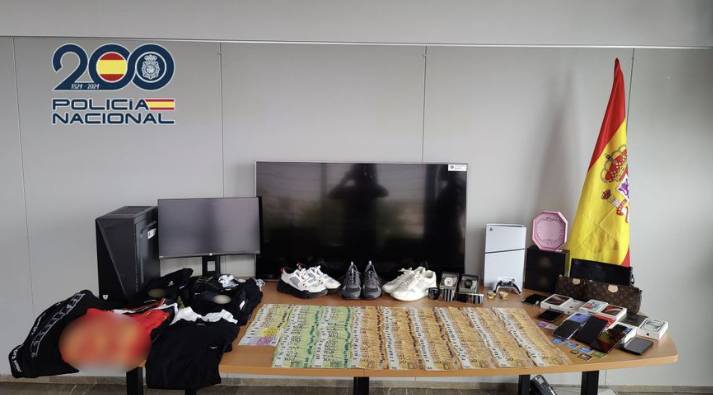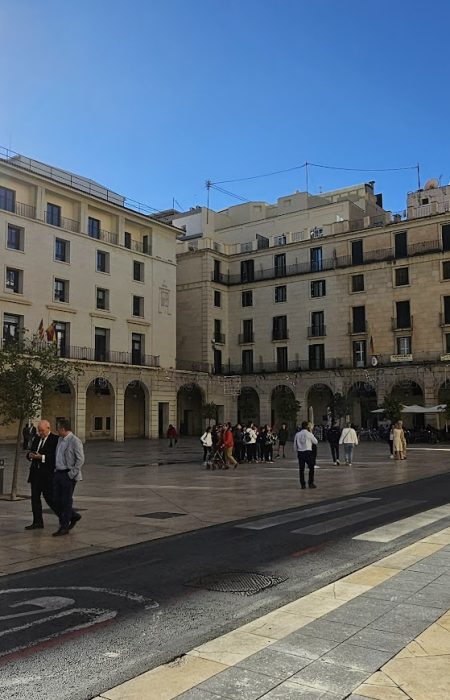A criminal organisation located in the province of Alicante scammed 273 people of almost one million euros by pretending to be bank personnel in order to gain their victims’ passwords. The Provincial Police Station claims that National Police officials have broken up a scam network that used the phoney bank staff tactic. More than 100 cops from various Spanish provinces participated in the operation, which resulted in eleven arrests and eleven searches. The police confiscated jewellery, expensive watches, phone terminals, about 30,000 euros in cash, and cryptocurrency assets. Seven individuals have been detained in the province of Alicante in Elche, Catral, and Guardamar on suspicion of cooperating with the group by accepting deposits into accounts under their own names.
When many phishing assaults employing the “fake bank employee” technique were discovered in multiple Spanish provinces earlier this year, the investigation got underway. Their methods of operation all pointed to the possibility that the same criminals were behind them.
Getting the trust of the victims
In order to establish a relationship of trust and alert customers to fraudulent activity in their accounts, the suspects called a sizable database of their clients. They then asked for transaction codes, purportedly to stop these transactions, but in reality, they wanted permission to use the money for their own purposes. Getting these codes led to purchases of technology and cryptocurrency, bank transfers, and transactions on instant money exchange sites.
Among other security precautions, the con artists used a large number of cell phones. Up to 55 distinct numbers were recorded during the inquiry; these were periodically switched to prevent simple identification.
Hotel Wi-Fi networks were utilised
Investigators also discovered that the suspects used Wi-Fi networks unrelated to their true identities to conduct the scams by taking advantage of times when they were staying in hotels and registering using stolen documents in the names of other persons.
Additionally, the network had a sizable network of “bank mules,” who were utilised to obtain the victims’ stolen money.
The four organisation leaders who are regarded as the material authors of the scams were ultimately fully identified as a result of the inquiry.
New victims found
Ultimately, this initial stage of the operation was executed, involving searches and raids in the cities of Sabadell in Barcelona, Jerez de la Frontera, Chiclana de la Frontera, and San Fernando in Cadiz. As a result, three of the network’s four primary suspects were apprehended. They were suspected of committing fraud, identity theft, and group membership.
Although 111 victims of the organisation had initially been identified across Spain as a result of the five house searches, an examination of the material obtained showed that 273 victims in total had allegedly suffered damages exceeding €778,637.
Cryptoassets worth 7,500 euros, 27,660 euros in cash, six scam-related mobile phones, a stolen national identity document, three expensive watches, jewellery, clothes, and other luxury accessories, as well as video game consoles, computers, and other electronic devices, were among the items found during the searches. These items were likely obtained from the proceeds of the illegal activities that the individuals arrested engaged in.
The detained individuals were sent to the Duty Courts in Chiclana and Jerez de la Frontera. Since the fourth suspect was not found, an arrest warrant has been issued for him.
A network of “mules”
Eight further gang members were taken into custody during the operation’s second phase. These individuals belonged to the second echelon of the network, and seven of them were apprehended in the southern region of the province of Alicante (three in Elche, three in Catral, and one in Guardamar del Segura) as well as one in Lleida.
They were known in police parlance as “recruiters and droppers,” and their job was to find people all over Spain, sometimes with particularly vulnerable profiles, who were willing to securitise phone lines, give the organisation access to their bank accounts so they could receive the money from the scams, or use their personal information to place online or in-store orders and then pick them up in person. It was verified that they had occasionally used coercion to get one of their “mules” to take money illegally out of one of their accounts.
More than 15,000 euros in cash, shotguns and other firearms ammunition, telephone equipment, computers, luxury items, watches, jewellery, various documents, and a high-end vehicle were seized during this second phase of six searches conducted in the province of Alicante (four in Catral and one in Guardamar del Segura) and one in Lleida.
The latter are under investigation for coercion, fraud, wrongful imprisonment, and membership in a criminal organisation. The Orihuela, Torrevieja, and Lleida Investigative Courts heard the cases of those who were taken into custody.









No Comment! Be the first one.